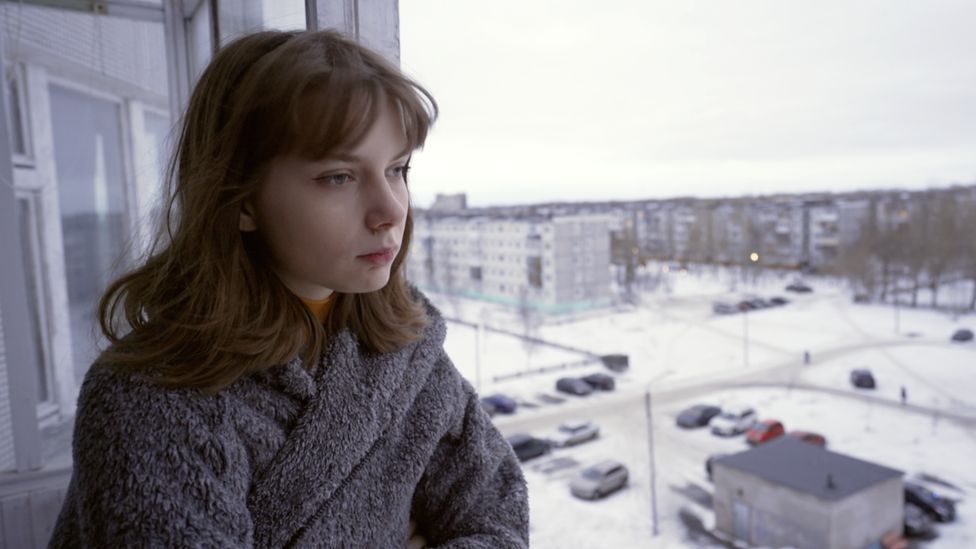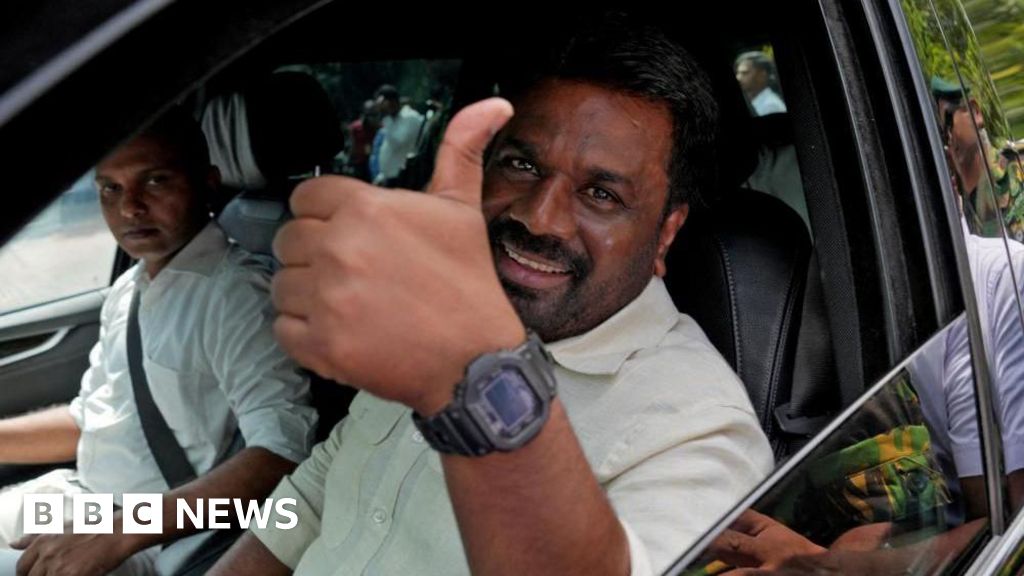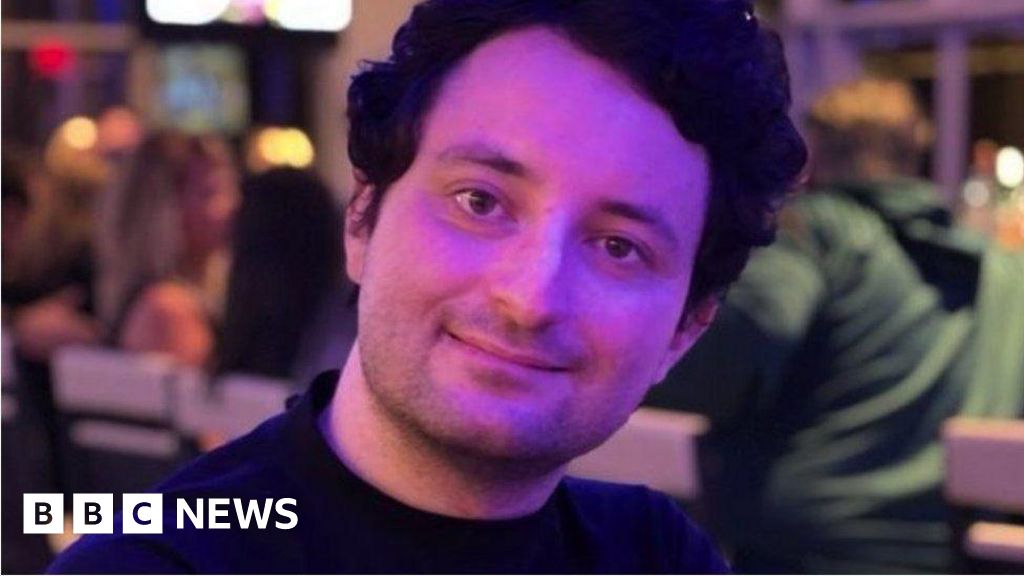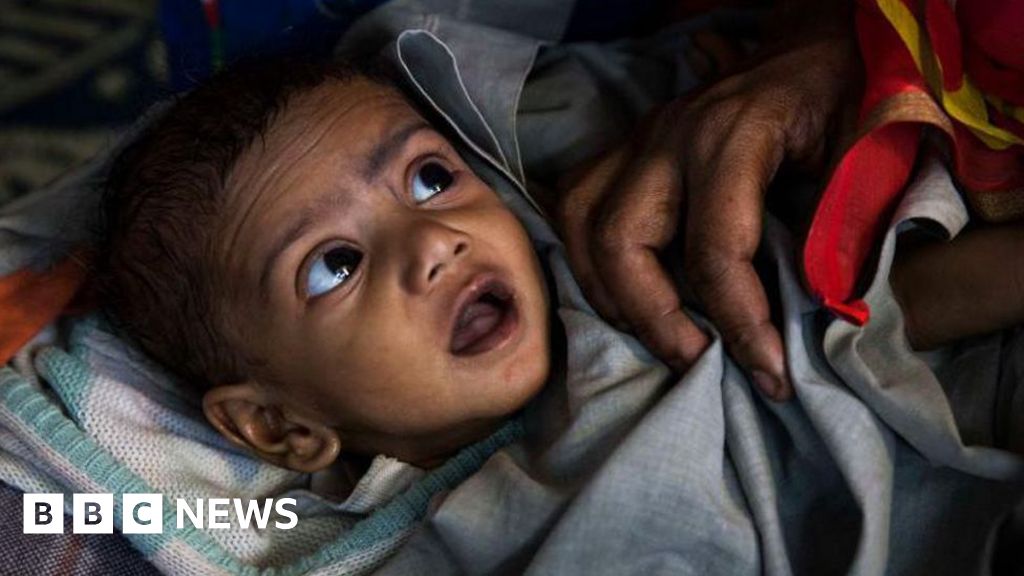ARTICLE AD BOX

Olesya's fellow students talked about denouncing her to the police because of her views on the war
By Steve Rosenberg
Russia Editor, Arkhangelsk
University student Olesya Krivtsova has been missing a lot of classes.
That's because 20-year-old Olesya is under house arrest. She has an electronic tag on her leg. Police can monitor her every move.
Her alleged crime? Olesya was arrested for anti-war posts on social media. One of them concerned last October's explosion on the bridge linking Russia to annexed Crimea.
"I posted an Instagram story about the bridge," Olesya tells the BBC, "reflecting on how Ukrainians were happy with what had happened."
She had also shared a friend's post about the war.
"I was talking on the phone to my mother," Olesya recalls, "when I heard the front door opening. Lots of police came in. They took away my phone and shouted at me to lie on the floor."
Olesya was charged with justifying terrorism and discrediting the Russian armed forces. She faces up to 10 years in prison.
Olesya is only allowed to leave home to attend court
"I never imagined anyone could get such a long prison sentence for posting something on the internet," Olesya says. "I'd seen reports of crazy verdicts in Russia, but I hadn't paid much attention and continued to speak out."
A student of the Northern Federal University in Arkhangelsk, Olesya has now been added to Russia's official list of terrorists and extremists.
"When I realised I'd been put on the same list as school shooters and the Islamic State group I thought it was crazy," recalls Olesya.
Under the rules of her house arrest she's banned from talking on the phone and going online.
Olesya has a striking image tattooed on her right leg - Russian President Vladimir Putin depicted as a spider, with an Orwellian inscription: "Big Brother is watching you."
It appears that in Olesya's case, it wasn't Big Brother watching her, but her fellow students.
Her anti-Putin tattoo reads: "Big Brother is watching you."
"A friend showed me a post about me in a chat," Olesya says, "about how I was against the 'special military operation'. Most of the people in this chat were history students. They were discussing whether to denounce me to the authorities."
The BBC has seen extracts from the group chat.
In one comment, Olesya is accused of writing "provocative posts of a defeatist and extremist character. This is out of place for war-time. It must be nipped in the bud".
"First let's try to discredit her. If she doesn't get it, let the security services deal with it."
"Denunciation is the duty of a patriot," someone else writes.
Later, when the list of prosecution witnesses was read out in court, Olesya recognised the names from the student chat.
It's one year since the Kremlin launched its "special military operation" in Ukraine - the term it uses for Russia's full-scale invasion of its neighbour. Within weeks of the assault, President Putin was calling on the Russian public to separate "true patriots from scum and traitors".
Since then, across Russia there have been reports of Soviet-style denunciations against critics of the war. They include students informing on teachers and workers denouncing colleagues.
BBC
They can't put everyone in prison. At some point they'll run out of cells
Public criticism of the invasion - and that includes reposting other people's criticism - is dangerous. The Russian authorities expect total, unflinching support for the offensive in Ukraine. If you don't support it, at the very least you're expected to stay silent. If you don't stay silent, there's a string of repressive laws for punishing dissent. That includes laws against spreading "false information" about the military and "discrediting" the army.
In Arkhangelsk, a giant portrait of a Russian soldier killed in Ukraine stares down on the city from the side of a nine-storey apartment block, along with the words: "Being a warrior means living forever."
The patriotic messaging is persuasive. On the streets of Arkhangelsk, we find little sympathy for Russians facing prosecution for their anti-war comments.
"People who discredit our army or spread fakes, they're sick in the head," Konstantin tells me. "They should be sent to the front line as cannon fodder."
Patriotic, pro-war messaging is everywhere in Russia
"I have a negative attitude to critics of the special operation," Ekaterina tells me.
But a long prison sentence for posting something online, isn't that harsh? I ask.
"People should use their brains," Ekaterina replies. "If they live in this country, if they enjoy all the benefits this country has to offer, if they're patriots, they need to abide by the law."
Later that day Olesya is allowed out of her flat. But only to attend a court hearing. Her defence lawyers are trying to persuade a judge to lift the restrictions on her movement.
Olesya's T-shirt sports a picture of a police van with "School Bus" written on it. A comment on how young Russians are being punished for their criticism of the authorities.
The judge rules to keep her under house arrest.
"The state doesn't have the stomach for debate, for democracy or freedom," Olesya says. "But they can't put everyone in prison. At some point they'll run out of cells."
Produced by Liza Shuvalova.

 1 year ago
29
1 year ago
29








 English (US)
English (US)